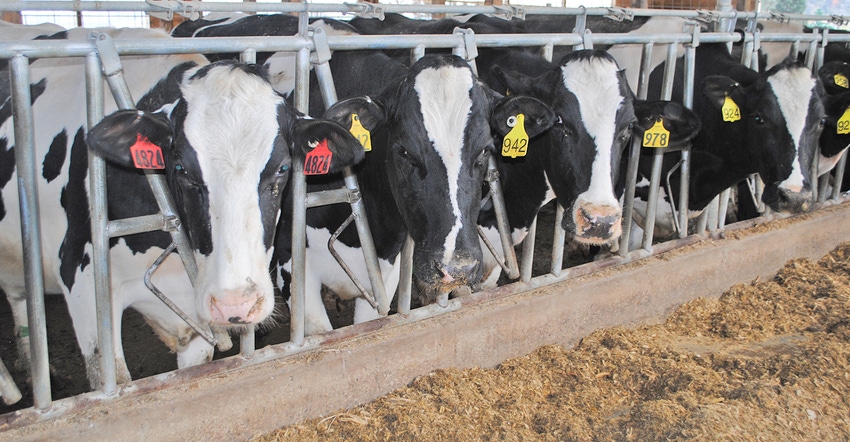February 13, 2018

My wife and I have been dairy farming for 45 years. We are both 66 years old. Originally we were planning to sell our cows this spring and retire, but with cow prices so low and farmers not having much money, we decided to wait to sell our cows. Now we are second-guessing our decision to wait. We milk 90 Holstein cows, raise about 100 heifers and farm 200 acres. Our two sons are grown and have jobs in town. A 16-year-old neighbor boy helps with chores and milking after school and on weekends.
We owe about $75,000 on our farm mortgage and about $10,000 at the feedmill for feed, seed and supplies. Our rolling herd average is 23,500 pounds of milk. We grow all of our forages and high-moisture corn. We buy protein supplement and calf feed. Would we be better off selling our cows this spring when milk prices are low, or wait until next fall or the following spring when milk prices and cow prices are hopefully better? When should we sell the heifers and our machinery? We plan to rent out our land and live on the farm.
Hodorff: Prices will always fluctuate, and trying to outguess the market is futile. Your position right now suggests that you should continue dairying. I would suggest you develop a better plan with an exit strategy. Look at selling off assets over a period of years. Keep your inventories at a minimum, and keep hiring some help. Any of these decisions should include some discussions with a financial planner and an accountant. Anytime you are selling assets, it becomes a taxable event. Your goal should be how you can retain as many dollars as possible.
Miller: Timing the sale of assets is a challenge. Concentrate instead on maximizing the value for selling your assets. Start with a visit to your accountant to discuss what you plan to sell — livestock, feed, and machinery and equipment — to calculate the expected ordinary or capital gains tax from selling these assets. This alone will assist you in timing the sale. You will likely find your tax adviser recommending the sale over two tax years to spread out the impact.
An additional consideration is how much feed you have. For instance, forages on hand would be fed until this fall, and then new crop at harvest could be sold as grain instead of making corn silage. You may also be able to sell hay off the field to neighbors or begin renting out your hay ground this year.
Fortunately, the sale of your assets will easily clear your debt, but you may also want to visit with a retirement planning specialist to calculate your income sources from land rent, investment income and social security to be certain you can align your living standards with your sources of income. Good luck transitioning the sale of your business.
Wantoch: I have only been married for five years, so I congratulate you on farming together for 45 years! I’m sure farming hasn’t always been easy during that time, and it sounds like you were hoping to retire soon with a healthy return on your investments. If you are considering limiting your income tax burden when you sell your farm assets, I suggest you consult with your tax preparer or accountant. They will likely suggest that you spread the sales over a number of years.
For example, you could sell the cows this year, continue to raise the young stock, and then sell them as springing heifers over the next few years. Next step would be for you to calculate your current feed inventory and determine what will be needed to feed the young stock. Then you can decide how many acres you would need to operate to maintain feed inventory and what farmland you could possibly rent to another farmer. Staggered sales will assist you in paying off outstanding payables and reducing your debt while also limiting your income tax obligations.
Agrivision panel: Doug Hodorff, Fond du Lac County dairy farmer; Sam Miller, managing director, group head of agricultural banking, BMO Harris Bank; and Katie Wantoch, Dunn County Extension ag agent specializing in economic development. If you have questions you would like the panel to answer, send them to Wisconsin Agriculturist, P.O. Box 236, Brandon, WI 53919; or email [email protected].
You May Also Like




